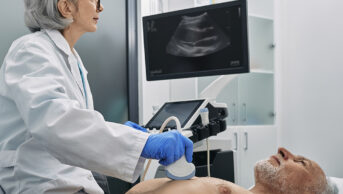
Shutterstock.com
Nearly 30 million adults without cardiovascular disease (CVD) in the United States could be at risk of harm from taking daily aspirin as a preventative medicine, research published in the Annals of Internal Medicine has indicated (23 July 2019)[1]
.
Researchers used responses from a 2017 health survey, which was nationally representative and included questions on self-reported aspirin use for CVD prevention from 14,328 adults aged 40 years and over.
They found that 23.4% of people reported taking daily aspirin for CVD prevention and, of these, 22.8% said they did so without a doctor’s recommendation. Nearly half of those aged 70 years and over reported taking aspirin, and over a quarter of adults who took aspirin had a history of peptic ulcer disease; aspirin use is not recommended for primary prevention of CVD in these two groups.
Evidence from three randomised controlled trials published in 2018 indicated that daily aspirin should not be used for the primary prevention of CVD as the harms, such as bleeding, outweighed the benefits. The researchers said their findings suggested around 29 million US adults without CVD could be taking daily aspirin as a preventative measure.
“Our findings show a tremendous need for healthcare practitioners to enquire about ongoing aspirin use and to counsel patients about the balance of benefits and harms,” the team concluded.
References
[1] O’Brien C, Juraschek S & Wee C. Ann Int Med 2019; In press. doi: 10.7326/M19-0953


